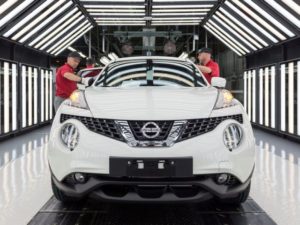Moody’s cuts global carmakers’ outlook to negative as Brexit weighs in
Rating agency Moody’s has downgraded its outlook on the global auto industry from stable to negative due to political challenges such as US tariffs and a potential no-deal Brexit.
The firm’s Investor’s Service said the move was driven by the expectation that global light vehicle sales are unlikely to recover meaningfully in 2019 and 2020 after declining during the latter part of 2018. Moody’s now expects unit sales growth of just 0.5% in 2019, down from its previous forecast of a 1.2% gain, which had assumed a stronger finish in 2018. For 2020, it expects growth to remain modest at around 0.8%. Both sales forecasts fall below the 1%-3% growth range required to grant a stable outlook.
It added that the auto sector was bearing the brunt of political risks, technological changes and environmental regulation, including the looming possibility of higher US import tariffs and the UK’s potential ‘no-deal’ exit from the European Union. Commenting in further detail on the latter, Moody’s said that a no-deal scenario would change the operating landscape for the global auto industry; disrupting the operations of Japanese, UK and some German automakers that have notable production capacity in the UK and ensuring UK-made cars imported into the EU would face a 10% auto tariff, in line with the taxes currently paid by non-EU countries.
“The UK production of these automakers is highly interconnected to the EU, and so a no-deal Brexit will create a significant negative impact through various channels, most notably, the cessation of tariff-free automobile trade with EU countries,” said Motoki Yanase, a Moody’s vice president and senior credit officer.
Further, additional time and documentation to clear customs could require automakers to increase inventory levels, while higher unemployment in the UK, reflecting economic damage from a no-deal Brexit, would contain wage pressures arising from weaker EU migration.
Commenting on the other pressures facing global automakers, Moody’s also said that continued investments in new technologies, such as autonomous driving, connectivity and advanced safety features, would be more challenging as unit sales flatten. Stricter environmental standards, such as the EU emission reduction target of in average 95g/km on average as of 2020/21 will force auto manufacturers to increase R&D expenditures and launch more fuel-efficient models or sales incentives in order to avoid penalty payments.


















